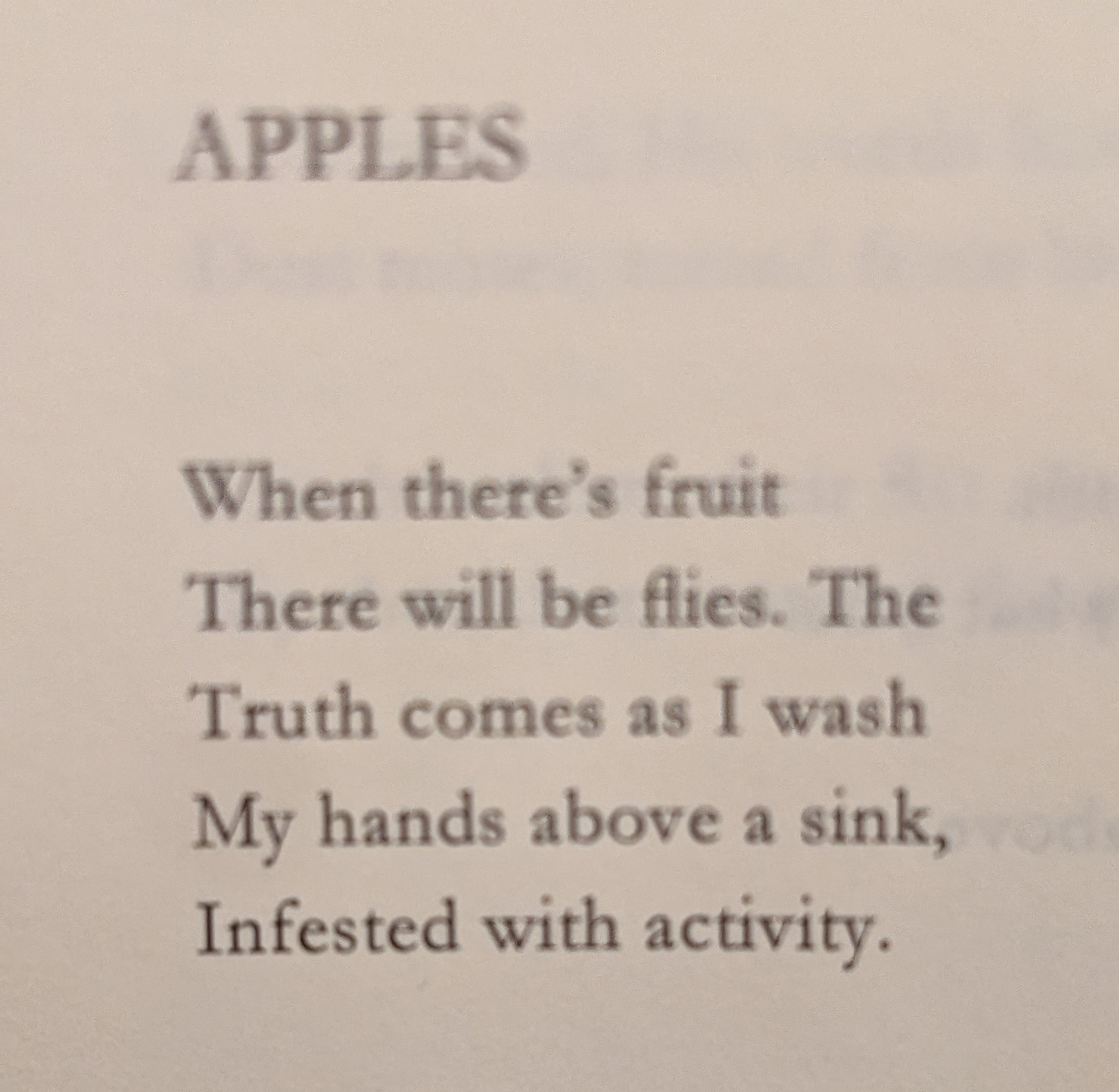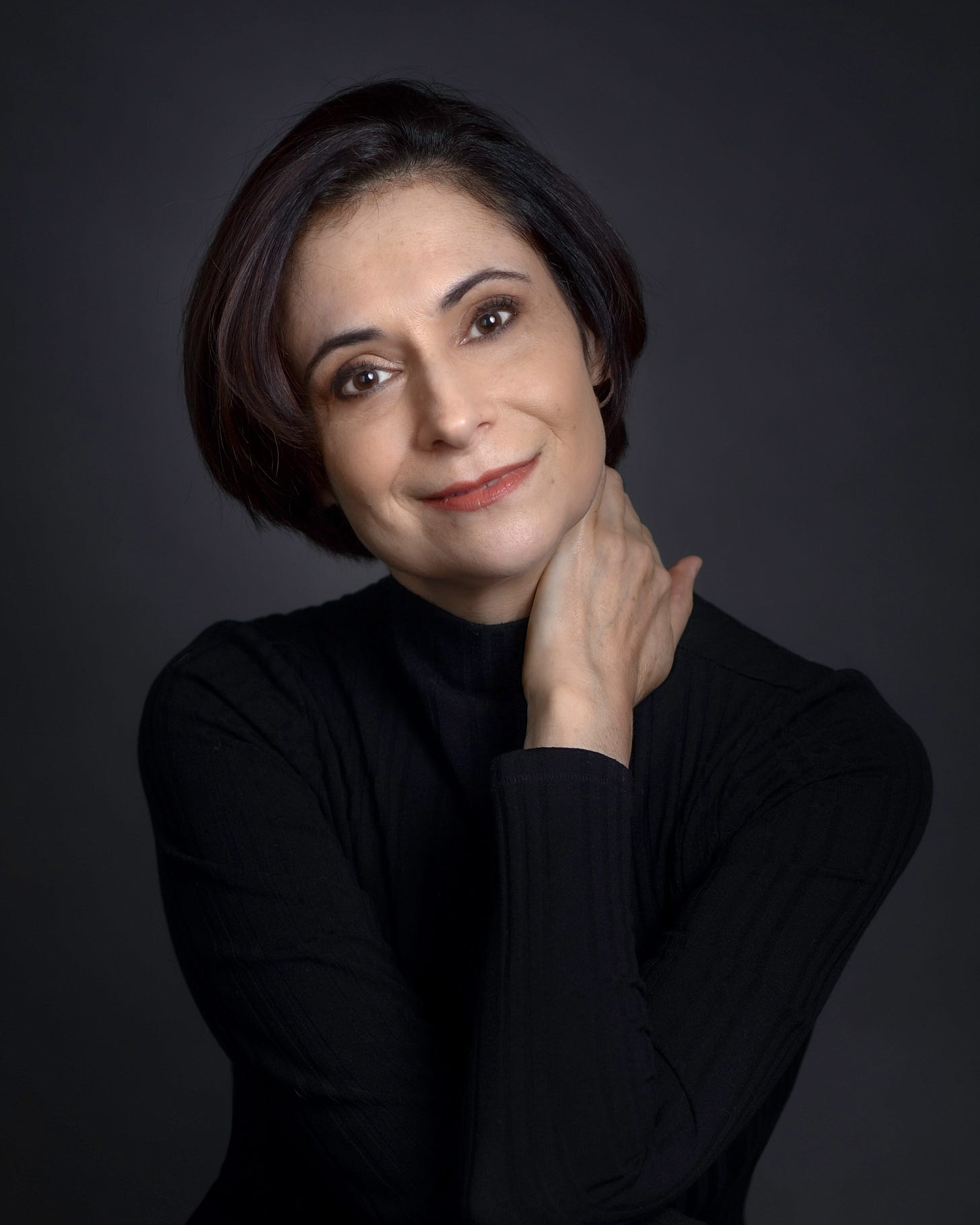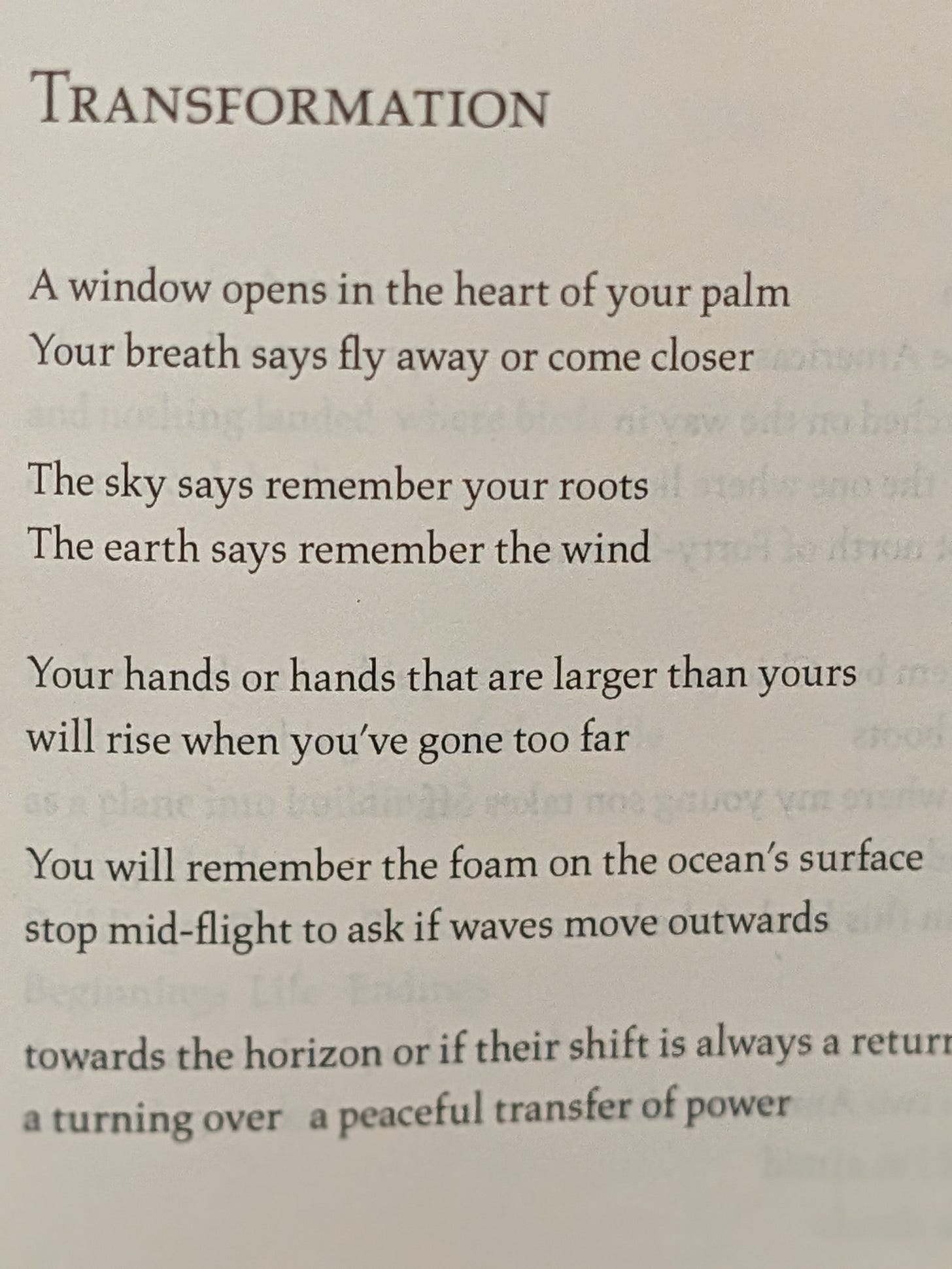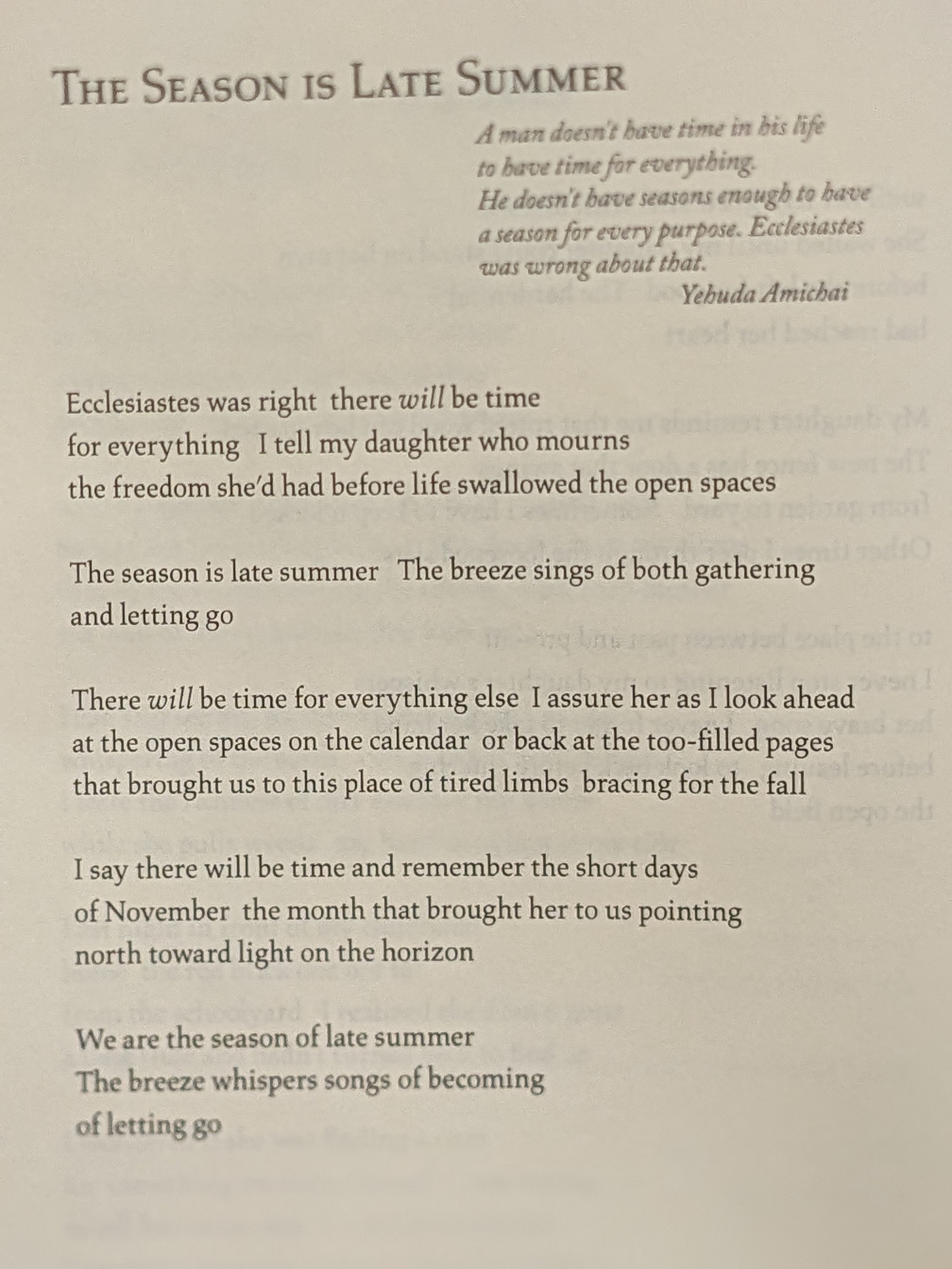Poems for a New Beginning
Whenever the new year begins for you, there is always room for poems of love & time.
I believe more people read poetry than anyone knows. The reason I believe this is because long ago, I had a college football player as a student, and he very shyly came to my office one day to let me know that he was lifting weights to Auden. He had memorized the last part of W.H. Auden’s great elegy to Yeats for my class, and he wanted me to know that the rhythm of Auden worked with weight training.
I told him I believed him.
Poems manage to reach their intended readers in all kinds of unexpected ways. Books of poems seem to arrive in my life—through the mail, or given to me directly by a poet after a delicious vegetarian meal in an Ethiopian restaurant. I want to hightlight two poems from a book that arrived through snail mail, and three poems from a book that reached me in print form at a restaurant table. Both collections have poems about love and looking inward—the raw material of beginnings and tranformations.
Out of Nowhere by Susan Comninos, pictured below, arrived in the mail.
It wasn’t always this easy for me to obtain poems. When I was a child, I used to painstakingly fill out book-purchase request forms at my local library, using the required stubby pencil. The form was thick like an index card, and the librarian on the second floor used to help me. He always wore sweater vests in a shade of mustard, and sometimes a beige blazer with brown patches at the elbows too. His vests had the bottom two buttons open, on account of his stomach.
I still remember what his vest buttons looked like—dark and made of wood. He seemed ancient to me then, but he was probably merely middle-aged.
He must have ordered every book I requested. When I was ten or eleven years old, I requested all of Diane Wakoski, who I thought was absolutely fantastic. (I had read the one book of hers the library owned.) I think I wrote “because she is fantastic” on my request form, under: “reason for request.” Today, all I remember is a line Wakoski had about her mother giving up cream in her coffee so that Diane could have piano lessons, and I hope some other little girl is enjoying all the Wakoski that librarian helped bring to the shelves.
I still sometimes read because of an individual line. I really love the first line in “A Love Poem” by Susan Comninos—”Adonai of night and flowers.” Like that Wakoski poem that stuck in my mind since childhood—it’s a love poem to a mother. It’s from Susan’s debut collection, Out of Nowhere.
“Adonai” is one of the Hebrew terms for God, and it’s an example of the beautiful grammar of Hebrew. “Adon” is literally “master” and “adoni” is the possessive—my master. But what is adonai? Literally it’s “my masters,” plural. You might not expect a monotheistic religion to have a plural term for God, but this is not the only example when Hebrew does this.
Another famous example is the word elohim, or my gods. The great medieval commentator comments that it does not literally mean plural gods, but rather that it is a plural that indicates respect. (Those who speak French may recognize this concept from vous, which is both the plural and the formal version of “you”.)
And because we might admit that each year, no matter how we count it, has both good and bad elements, I am also featuring Susan’s short poem on that. This five-line poem also captures the epiphanies many of us seem to have while doing dishes.
Comninos is a writer and teacher who lives near Albany, NY. You can read more of her work in TriQuarterly: https://www.triquarterly.org/issues/issue-139/italian-you
Susan Comninos. Photo credit: Lana Ortiz
Poems About Walking and Water
Shore by Dina Elenbogen is probably the only poetry collection I have received in an Ethiopian restaurant, but that is fitting—because Dina is also the author of a memoir titled Drawn from Water: An American Poet, an Ethiopian Family, an Israeli Story (BKMK Press, University of Missouri, 2015.)
Shore, just published in 2023 by Glass Lyre Press, is Dina’s second collection. Her first collection was Apples of the Earth (Spuyten Duyvil, 2005).
It was hard to select poems to highlight. I told myself I would pick two, for symmetry, but ended up with three. I love how “breath” and “earth” work together here—and of course, the first line is wondeful:
From the first line onward, because of its connection with sky, earth, and self. I can feel the beating heart of a walker. And walking plays a large role in this book.
Next, I couldn’t resist including Dina’s “This Year” as many friends of mine were discussing all that did not happen in their lives during the year that had just passed.
And in conversation with many writers I admire, I hear that same sentiment of being “out of fashion with peers”, here in the second beautiful stanza. And of course, so many of us—writers or not—are feeling like “buttons hanging by threads” due to world events, and all the despair emanating from them.
Where the Title Comes From
“Shore is a perspective, the safe place from where I view the turbulence around me, both the beautiful and the tragic, and quite literally, many of the poems in ‘Shore’ were written while walking along the lake,” Dina wrote in a lovely essay in Newcity, which opens by explaining the title of her book.
“The keepers, the fragments of language that wash up on the shore like sea glass, are the building blocks of the poems I create back at my desk.” https://lit.newcity.com/2023/08/24/the-privilege-of-walking-and-writing/
Dina teaches a course in walking and writing. And Chicago seems to have a lot of writers who are dedicated to the practice of walking, like poet and novelist Kathleen Rooney. I first read Dina’s new book, Shore, as a PDF, but there’s something about having a paper book in your hands that just works for poetry. It’s easier to feel how the poems talk to each other, and how they connect through time.
Here is another poem from Shore with a first line that I just loved. And I certainly hope there will be time for everything, for all of us:
Those last two words—"letting go—with no punctuation, also seem right for this time of year, even though the official time of the poem is late summer.
Poet & essayist Dina Elenbogen.
What’s Ahead
I’ll be at the AWP Conference in Kansas City in February for a panel on “Breaking the Rules on Chapbooks: New Approaches to an Old Form,” and in honor of that I will do some newsletter posts on chapbooks to get into the chapbook mood. Come find our panel on Friday, February 9, 2024 from 10:35 a.m. – 11:50 a.m. CT in Room 2101, Kansas City Convention Center, Street Level.
I am excited to add new features to this newsletter, and will be hosting winter salons for paid subscribers. Your support has made continuing this newsletter possible.
The first will be a Sunday salon with the marvelous fiction writer Christine Sneed, who also writes the Bookish newsletter; we will be discussing “Writers and Hope”. We’ll talk about writers from the past who have had crises of hope, and we’ll share our own strategies for remaining hopeful and getting to the finish line with writing projects. The salon will be on Sunday, January 14th at 2 CST, online via Zoom. And if you are looking for a sublime book of stories for winter, I recommend Christine’s incredible debut collection, Portraits of a Few People I Have Made Cry.
And last but not least, if you are intrigued by writers mentioned in the newsletter, please do fill out a request form for their books at your local library. It’s free, the form is usually online too, and it dramatically increases the chances that someone else will be able to discover that poet’s work—maybe a football player, or a child.
Thank you and hope to see you in-person or online this winter. Happy reading!
*************************************************************************************************
Hope you enjoyed this newsletter! Thank you for your support of writing with depth.













I am definitely going to request these books from the library. If I love them as I suspect I will, I'll then buy my own copies to read and reread.
Truly beautiful. Thank you for this introduction to her—definitely left me wanting more.